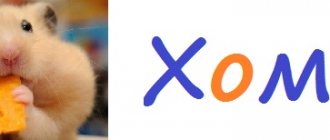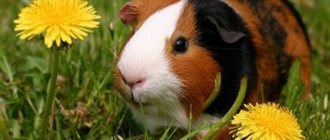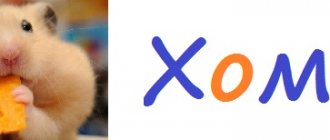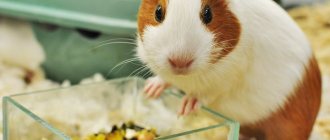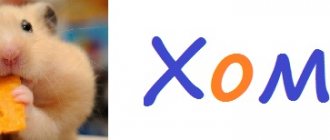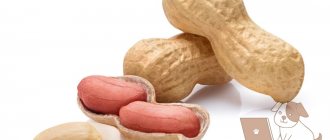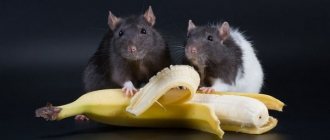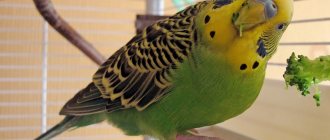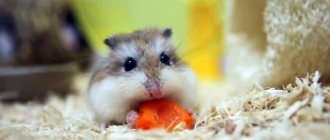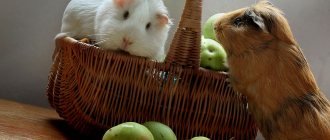If a chinchilla rodent lives in your house, you need to understand that nuts must certainly be present in its diet. It is important to choose the right balanced diet for your pet; this will be the key to its healthy and harmonious development. Many pet owners ask questions: can chinchillas eat walnuts, peanuts or almonds? Let's answer these questions to understand what nuts a chinchilla can eat.
What nuts can be given to chinchillas and in what quantities?
Keeping a rodent at home comes with many questions. The main topic is the right menu for your pet. Is it possible to give him nuts, are cashews harmful, or is it better not to? Or limit yourself to hazelnuts and almonds?
To reward your pet (for example, for good behavior or correctly executed command) - you can. The allowed percentage of fat per day is 6%. Larger will harm your pet.
Can chinchillas have walnuts?
Walnut kernels are used in cooking, are healthy for humans and are found in almost every home. The thought involuntarily comes to mind that chinchillas can also use them.
The opinions of professionals here are divided: for some, walnuts are an unnecessary delicacy, for others, they are a necessary source of pleasure.
A rodent only needs 1 quarter of a kernel once a week. The reason is the significant fat content in these fruits.
Almonds for a snack
The high percentage of fat content and energy value of almond grains is not much inferior to pine nuts. Although some owners indulge their pets with this delicacy, veterinarians advise against it. Eating almonds by an animal leads to digestive disorders and is difficult to treat.
According to another version of experts, almonds strengthen the body’s defenses and resistance to infections. If the pet is completely healthy, he is allowed to eat a little treat - ¼ of a kernel approximately once every 10-12 days.
If an animal is exhausted after illness, almonds will restore its strength. It will also serve as an additive to the diet of pregnant and lactating females.
Causes of bowel dysfunction
There are many reasons that can cause bowel problems in chinchillas.
The most common of them are:
- Lack of hay - this element is a necessary part of the daily diet of rodents, since it participates in the normalization of the entire functioning of the digestive system and promotes the movement of food. But the lack of succulent feed, as well as concentrates in the feeder, can lead to constipation. Nutrition must be balanced.
- A foreign object in the stomach is most often wool, and therefore thorough and regular cleaning of the cage is a mandatory procedure to maintain the health of the animal.
- Taking antibiotics - during the treatment of various diseases, medications are often prescribed that have side effects. The most common of them include disturbance of the animal’s stool.
- Limited space - lack of movement has a negative impact on the general condition of chinchillas, in particular, leading to constipation. Therefore, when keeping an animal in a small cage, you should let it out on its own as often as possible, adhering to all safety rules, of course.
- Postpartum state - the first days after the birth of the offspring, the body spends all its energy on restoration and adaptation, which can lead to disruptions in the functioning of the digestive system.
In addition, constipation can result from various diseases of the stomach and liver, as well as infectious diseases.
It is also necessary to ensure that there is a sufficient amount of clean water in the sippy cup. Lack of moisture is one of the main causes of constipation in all animals.
Seeds instead of nuts
You can replace harmful nuts with healthier seeds - pumpkin, sunflower, etc. Chinchillas will happily gnaw on such a treat: after all, in the wild, seeds constitute the main diet of rodents.
However, domesticated animals lose their living skills in the wild. Many products seem useful to them.
Roasted seeds are considered harmful: the chinchilla’s body is not equipped to digest them. There is no such food in the wild. They will be replaced by raw seeds. But in small quantities.
The fatty acids in the raw seeds make the fur shiny and thick. They have less nutrients than nuts.
Melon seeds (melon, watermelon, squash, pumpkin)
Rodents and birds love them very much. From 5 to 7 seeds, fresh and dried, are enough per day. Pumpkin seeds serve as an anthelmintic.
Apple
They do not have a special taste, and the animal does not overeat them. 4-5 seeds per day are enough. An important plus is that they contain substances that fight cancer.
Herbal
Pet chinchillas need sesame and flax seeds. They contain a lot of fat, and the amount should be limited so as not to upset digestion.
Chinchillas should not eat cherry, plum or sweet cherry pits. They contain poisonous hydrocyanic acid. Chestnut fruits will not bring any benefit either.
What other health problems can consuming raw seeds lead to?
Allergies can also be caused by eating seeds of poor quality. Treating them with dyes, chemicals and preservatives to preserve the presentation of the product can contribute to the development of an allergic reaction. Molds can also cause a reaction: this is a strong allergen, they can be present in seeds that were stored incorrectly.
“You can eat pumpkin and sunflower seeds raw; they do not contain anything poisonous. But the whole point is where such seeds were stored. Raw seeds are more susceptible to various mold processes, and pathogenic microflora also develop faster in them. And, in fact, because of this, it is dangerous to consume raw seeds. If it’s an absolutely fresh product, then go ahead, but if you don’t know where, how and how long they were stored, then it’s better not to eat them,” says Solomatina.
“Clicking” seeds is not very beneficial for tooth enamel. Although peeled seeds are safer for teeth, they do not have much value for the body. When exposed to air, the fats contained in them quickly oxidize and lose their beneficial qualities. The nutritionist advises buying seeds only in the peel and peeling them yourself, and drying them a little before use, but not frying them.
Source
What nuts can you give chinchillas?
If you have purchased a chinchilla, then the main question that any owner of this animal asks is: “What to feed your beloved pet so that it is healthy?”
The chinchilla is a representative of animals living in the South American Andes. Despite its exotic origin, its food, like the majority of rodents, does not cause difficulties. Chinchillas are mainly herbivores. But, if possible, they can also snack on a small insect, and even a small frog.
Modern zoological stores sell special balanced nutrition for these furry animals. Pelleted food is a mixture of compressed grass pellets, grains, dried fruits, vegetables, pumpkin and sunflower seeds.
Chinchilla looks menacingly at the nut
Granulated food for chinchillas makes up 70-80% of the total diet. From 20 to 30% is additional feeding.
Its health and life expectancy will depend on the correct nutrition of a chinchilla. These animals have a very sensitive gastrointestinal tract.
Giving fresh herbs or fruits rather than dried ones can cause an upset stomach and, as a result, diarrhea. Sweet and fatty foods cause problems with the liver and pancreas. Overfeeding with fatty foods can cause pancreatitis, which is difficult to treat.
Daily servings for your pets should not exceed one, or maximum two tablespoons of food. More than this norm will be overfeeding for your pet: as a result, there is a risk of obesity and problems with the cardiovascular system.
How long can a chinchilla live if you feed it correctly? More than will survive in the wild. And in the wild they live up to 12 years, at home easily up to 20 years. Your child can introduce this chinchilla to their children - this is how many years chinchillas can live with proper care
Food for chinchillas is, first of all, hay, which is the main dish. Cereal mixtures: oats, buckwheat, wheat. You can give cereal, but it is better to stick to whole grains. Chinchillas also eat 1-2 kernels of corn per day. Legumes – soybeans, lentils, peas – are needed to replenish the supply of protein in the chinchillas’ body.
Dried vegetables. You can also introduce thin slices of carrots, pumpkin, Jerusalem artichoke, squash, zucchini, zucchini, kohlrabi, cucumbers and tomatoes into your diet. Chinchillas eat thinly sliced vegetables with pleasure.
Treats are dried fruits and berries. But, since they contain a high percentage of sugar, they must be introduced into the diet with caution. You can give dried pears, apples, figs, rose hips, strawberries, blueberries, raspberries, currants, strawberries. Citrus fruits are not recommended for the menu, as they cause allergic reactions. You can include dried apricots and prunes in your diet. But they need to be washed and dried well.
You can treat them with white bread croutons. Chinchillas love this treat. You just need to give them very little.
Chinchillas are also given branches of trees and bushes. Since rodents constantly grow teeth, they need to scratch and grind them down. Dry twigs of birch, apple, pear, raspberry, linden, rowan, and mulberry are suitable for your pet's diet. All coniferous trees are prohibited as they contain resin.
Authorized Products
The list of foods that can be given to chinchillas is quite large. Animals can be fed fruits:
- Bananas,
- Apples,
- Pears,
- Figs
- Vegetables:
- Pumpkin,
- Milk corn,
- Bell pepper,
- Kohlrabi,
- Zucchini,
- Zucchini,
- Kohlrabi,
- Patissons,
- Ripe red tomatoes.
- Lettuce leaves,
- spinach leaves,
- Clover,
- Alfalfa,
- sorrel leaves,
- Dandelion leaves and stems,
- Celery,
- Chicory,
- Cornflowers,
- Vika,
- Common nettle,
- Sagebrush,
- Raspberry leaves and stems
- Strawberry leaves and stems
- Plant tops,
- Twigs with leaves of apple, pear,
- Birch and linden branches,
- Hazelnut sprigs.
- Corn (corn grains are part of the feed mixture and are given in ground form),
- Barley (given in ground form),
- Wheat (grains and bran),
- Oats (grains, bran, flakes),
- Millet,
- Buckwheat,
- Rice.
Is it possible to feed chinchillas nuts?
Chinchillas love nuts, like sunflower and pumpkin seeds. But they are given exclusively as a treat. This could be a reward for following commands during training or for good behavior while walking around the apartment.
Since such food contains a lot of fat, it should not be a constant treat for your pet. The maximum percentage of fat per day, if you care about the health of your pet, should not exceed 6%.
Nuts come in a variety of different types. They are an integral part of the chinchilla menu. And well-chosen types of nuts will only benefit your pet.
Walnuts for chinchillas
The very first thing that comes to mind is the common walnut. It is very useful in the human diet, but what about the diet of chinchillas?
Veterinarians have different opinions on this matter. Some consider them an unnecessary excess delicacy, while others, on the contrary, say that they are a healthy and necessary food product.
The choice is yours. Chinchillas love walnuts, but there is no need to overeat them. Walnuts, like other nuts, are quite high in fat. Therefore, you can treat your pet no more than once a week, and no more than one kernel.
Peanuts for chinchilla
Yes, yes, we know: it is not considered a nut. However, this legume is most often associated with nuts, and peanuts are sold on the same shelf as hazelnuts and walnuts. So let's look at that too. Peanuts, like any other nut, contain a large amount of fat. Therefore, an excess of it in the body can greatly overload the functioning of the rodent’s liver.
This nut is useful for activating the digestive system. This product also stimulates and improves the reproductive functions of chinchillas.
Give me the nut, I'm a Chinchilla and I love nuts!
By following simple rules, you will not harm your pet’s health:
- feed your pet peanuts no more than once a week;
- give your chinchilla no more than one nut as a treat;
- Peanuts should not be cooked. It should not contain salt, sugar or other spices.
Pine nuts for your chinchilla
Pine nuts are very fatty. Analogy: feeding a person only lard. Therefore, pine nuts are excluded from your pets’ diet, since they are equated, in this case, with a deadly poison that will damage the digestive system irrevocably.
Hazelnuts for chinchillas
Hazelnut kernels are believed to be beneficial for furry pets. Hazelnuts contain elements necessary for the rodent body: folic acid and vitamin E. This helps strengthen muscle and bone tissue. But everything must be dosed to the maximum, since the same fat can harm your pet.
A portion of the treat should not exceed a quarter of the kernel of one hazelnut. It should be included in the diet no more than once every two weeks.
Almonds on the chinchilla menu
The opinion of veterinarians about this type of nut is also ambiguous. Some equate their effects to pine nuts - very fatty, high-calorie nuts that disrupt the digestion process and lead to intestinal dysfunction.
Other experts allow their pets to be pampered with them, but very rarely and, as always, in doses. They believe that almonds strengthen the animal’s natural immune defense and increase its resistance to infections.
You may need to consult your veterinarian before introducing this treat to your menu. If your furry baby is healthy, then you should occasionally pamper him with his favorite treat.
Cashews in the diet of chinchillas
The cashew kernel contains many nutrients, which helps enrich all the chinchilla's systems. Cashews saturate the body of furry rodents with energy. You should also treat your pet no more than once every two weeks.
Feeding recommendations
When organizing food, it is not enough to know what you can feed a chinchilla and what you cannot feed. Proper feeding also means following a diet, keeping feeders and drinkers clean, as well as understanding the peculiarities of the animal’s digestion. The first and most important rule is that there should always be hay in the cage, as well as drinking water. Feeders and drinkers must be clean. To do this, they must be disinfected regularly (at least twice a week) with boiling water. It is better not to use wooden feeders - they absorb odors and become sources of mold and mildew. Preference should be given to ceramic ones, which attach well to the cage and are easy to clean.
Chlorhexidine can be a disinfectant for the entire cage - it kills germs well and is odorless, but it is better not to use it for drinkers and feeders. Some breeders use regular laundry soap as a disinfectant. You can also wipe the drinking bowls and feeders, as well as the cage, with alcohol. It is also necessary to keep the cage clean because sometimes the animal prefers to eat on the rest area or even in the house. Many owners have noticed how a chinchilla takes a piece of food and runs for cover.
It is also important to ensure that all feed is fresh, clean, and free of dust, rot, and mold. It is recommended to buy ready-made food only from trusted pet stores. All succulent food, as well as lettuce or spinach, must be washed well before being given to the animal. Branches and bark of trees that are offered to your pet must be well dried and free of traces of insect activity.
Vegetables and fruits intended for chinchillas must be washed and cut into convenient small pieces.
It is necessary to feed your pet at the same time, and all leftover food is removed from the feeder the next day. It is most preferable to feed roughage in the evening, and succulent feed in the morning. If the chinchilla is reluctant to eat, you should change the food. The first reason for poor appetite is monotonous food. New types of feed should be introduced gradually and little by little. If you are not sure whether chinchillas can eat this or that type of product, it is better to abandon it altogether and add something that the animal has already tried and eats with pleasure.
Source
What nuts can chinchillas eat?
from
Mikhail Konovalov 06.24.2019, 22:49
1.3k Views
If a chinchilla rodent lives in your house, you need to understand that nuts must certainly be present in its diet. It is important to choose the right balanced diet for your pet; this will be the key to its healthy and harmonious development. Many pet owners ask questions: can chinchillas eat walnuts, peanuts or almonds? Let's answer these questions to understand what nuts a chinchilla can eat.
Rules for self-harvesting branches
When buds appear on the trees, you can begin harvesting branches. They are cut with pruning shears. The sap moving through the trees at this time has the most valuable nutritional composition.
- Only living branches are taken from healthy trees and shrubs. Animals that are dried out, dirty, moldy or have marks of teeth cannot be cut off. The stems of raspberries, gooseberries, and hawthorns must be cleared of sharp thorns so that the animal does not injure the oral cavity.
- The branches (about 1 cm in diameter) are divided into parts 5–7 cm long. This size is convenient for a chinchilla, who eats while sitting and holding the treat in her front paws.
- The chopped twigs are washed well and doused with boiling water. Dry in the oven, placing it on a baking sheet in a thin layer.
- The oven door is left slightly open. The sticks are checked and mixed periodically.
- Completely dried branches are stored in cardboard boxes. Plastic containers are not suitable for this; they can become moldy there. Well-dried wood will not mold. However, after a few weeks you need to check the twigs - those infected with mold are thrown away, the rest are dried.
Familiar treats
The most accessible are walnuts, so we will begin to consider this issue with them. Veterinarians differ in their answer to the question: Do chinchillas need walnuts?
Some experts believe that nut kernels are an excess in the diet, while others argue that nuts must certainly be present. It is worth watching your pet when introducing this type of nut into its diet.
Important. Do not forget that the kernels contain a large amount of fat, so you need to give a small piece of the kernel once a week.
Herb seeds
In nature, rodents feed on grasses, eating their seeds. This means that they also need this natural food at home.
Flax seed can be given in small doses to improve digestion. Plantain together with seeds has a good effect on the organs of the gastrointestinal tract. Nursing females will benefit from fennel seed; it promotes lactation. Any herbaceous plants recommended for inclusion in a pet's diet can be given with ripened seeds.
Peanuts in the diet
This type of nut can be given to pets, but you need to understand that it puts too much strain on the liver. When offering peanuts to your pet, follow these recommendations:
- Give a nut no more than once a week.
- Give only one nut at a time.
- The product should not undergo heat treatment; any spices are contraindicated.
This product is useful in the following ways:
- Improved digestion.
- Stimulation of the reproductive system.
Sweetish cashews
Cashews provide the animal’s body with energy, so it can also act as a treat once every 2 weeks. Also, the high nutritional value of the kernels contributes to the enrichment of systems and organs with useful substances.
Therefore, you can and should pamper your pets with such “goodies”, but carefully following the instructions of specialists. Please note that some brands of chinchilla food already contain nuts, do not forget to take this amount into account.
We also recommend that you read the articles on the influence of herbs and seeds on the health of your pet in the articles “Herbs and plants in chinchilla nutrition” and “Which seeds can be given to chinchillas and which cannot.”
Source
Hazelnut
This product is very useful for these cute furbabies. Since it contains a fairly high content of folic acid and vitamin E. These components are necessary to maintain the full functioning of the animal’s body, as well as strengthen muscle tissue and bones.
You should not completely deny your pet hazelnuts. Once every two weeks, give the animal about 1/4 of the kernel, this will be beneficial and will not harm.
Authorized Products
The list of foods that can be given to chinchillas is quite large. Animals can be fed fruits:
- Bananas,
- Apples,
- Pears,
- Figs
- Vegetables:
- Pumpkin,
- Milk corn,
- Bell pepper,
- Kohlrabi,
- Zucchini,
- Zucchini,
- Kohlrabi,
- Patissons,
- Ripe red tomatoes.
Greenery:
- Lettuce leaves,
- spinach leaves,
- Clover,
- Alfalfa,
- sorrel leaves,
- Dandelion leaves and stems,
- Celery,
- Chicory,
- Cornflowers,
- Vika,
- Common nettle,
- Sagebrush,
- Raspberry leaves and stems
- Strawberry leaves and stems
- Plant tops,
- Twigs with leaves of apple, pear,
- Birch and linden branches,
- Hazelnut sprigs.
- Corn (corn grains are part of the feed mixture and are given in ground form),
- Barley (given in ground form),
- Wheat (grains and bran),
- Oats (grains, bran, flakes),
- Millet,
- Buckwheat,
- Rice.
Apples, pears, as well as carrots, pumpkins, zucchini, berries can be given to animals both fresh and dried.
Some chinchillas are more willing to eat dried foods, and they are also safer for the digestive tract.
It is recommended to collect fresh grass for furry pets in places far from roads and landfills, walking pets and industrial enterprises. It is not recommended to feed grass that is wet from dew or rain. And also carefully monitor that there are no poisonous plants among other weeds.
Almond
Veterinarians recommend avoiding this product. They have a high calorie content, which leads to a malfunction in the pet’s body.
Some experts, on the contrary, believe that almonds help strengthen immune defense, and also increase resistance to various infections. If you still want to treat your pet with almonds. Be sure to consult your veterinarian.
